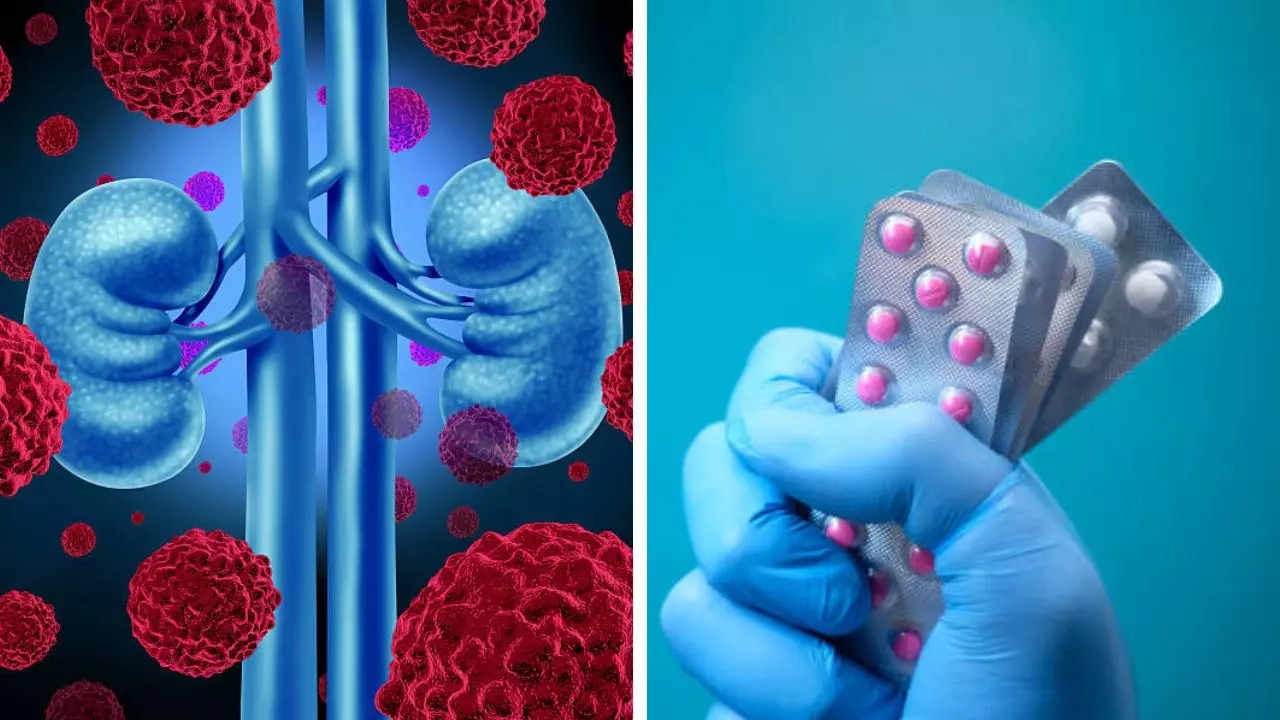Ashima Sharda Mahindra • 18 Sep 2024
Combination Treatment Doubles Survival for Patients With Advanced Kidney Cancer

The strategy has greatly boosted survival among those patients of advanced kidney cancer, which is usually fatal
A small clinical trial has suggested that a combination of drugs can extend survival for people who are battling advanced kidney cancer, also known as metastatic kidney cancer. Researchers at Roswell Park Comprehensive Cancer Center in New York developed a new regimen – an amalgamation of pazopanib, also known as Votrient, and bevacizumab, or Avastin.
Pazopanib is a prescription medication cancer drug known as a tyrosine kinase inhibitor that works by blocking vascular endothelial growth factor signaling, an important mechanism that cancer cells need to grow.
New trial doubled progression-free survival to nearly two years
In previous studies that led to US FDA approval for treatment, the drug caused an average survival in cancer patients of just under a year. This trial, which involved at least 50 patients, found that combining pazopanib treatment with bevacizumab nearly doubled that progression-free survival, to more than two years.
According to researchers, patients received pazopanib and bevacizumab in 10-week treatment cycles. They were first given with pazopanib during days 1-28. The team, led by Dr. Saby George, said pazopanib works by shutting down VEGF, but any increase in it can lead to cancer cell resistance against the drug. And so, the patients were given bevacizumab midway through the 10-week cycle, since that drug apparently "neutralizes" VEGF.
The strategy appears to have worked, greatly boosting survival among those patients who received it.
The findings of the trial, presented last week at the European Society for Medical Oncology Congress in Barcelona, will be considered preliminary until published in a peer-reviewed journal.
Researchers in the Rosewell news release said the combo drug therapy had "superior safety compared with immunotherapy combinations."
“Because immunotherapy options were available to patients in other risk groups, the phase 2 group included more patients in the Favorable Risk category,” said George, a professor of oncology and medicine at Roswell. “The encouraging results suggest that alternating pazopanib with bevacizumab is a promising treatment regimen for renal cell carcinoma patients in the Favorable Risk group.”
What is kidney cancer?
According to experts, kidney cancer develops when cells in your kidneys change and grow out of control. Those who have this would notice flank pain, high blood pressure, blood in their pee, and other symptoms. Kidney cancer treatments include surgery, chemotherapy, and radiation therapy.
As with all cancers, early detection is key for successful treatment. According to the Cleveland Clinic, kidney cancer is most common in people between the ages of 65 and 74 years and men are twice as likely as women to develop the disease.
Kidney cancer is much less common in children. However, 500 to 600 children are diagnosed with a Wilms tumor - a type of kidney cancer - every year in the United States.
What causes kidney cancer?
According to experts, even though the exact cause of kidney cancer is not known, there are certain risk factors that increase your chances of getting the disease. These include:
Smoking
Doctors say those who smoke are at greater risk
Obesity
Obesity is a major risk factor for kidney and other cancers.
High blood pressure
Also called hypertension, high blood pressure has been linked to an increased risk of kidney cancer.
Family history
Those who have immediate family members with kidney cancer have an increased risk of developing it themselves.
Get Latest News Live on Times Now along with Breaking News and Top Headlines from Health and around the world.